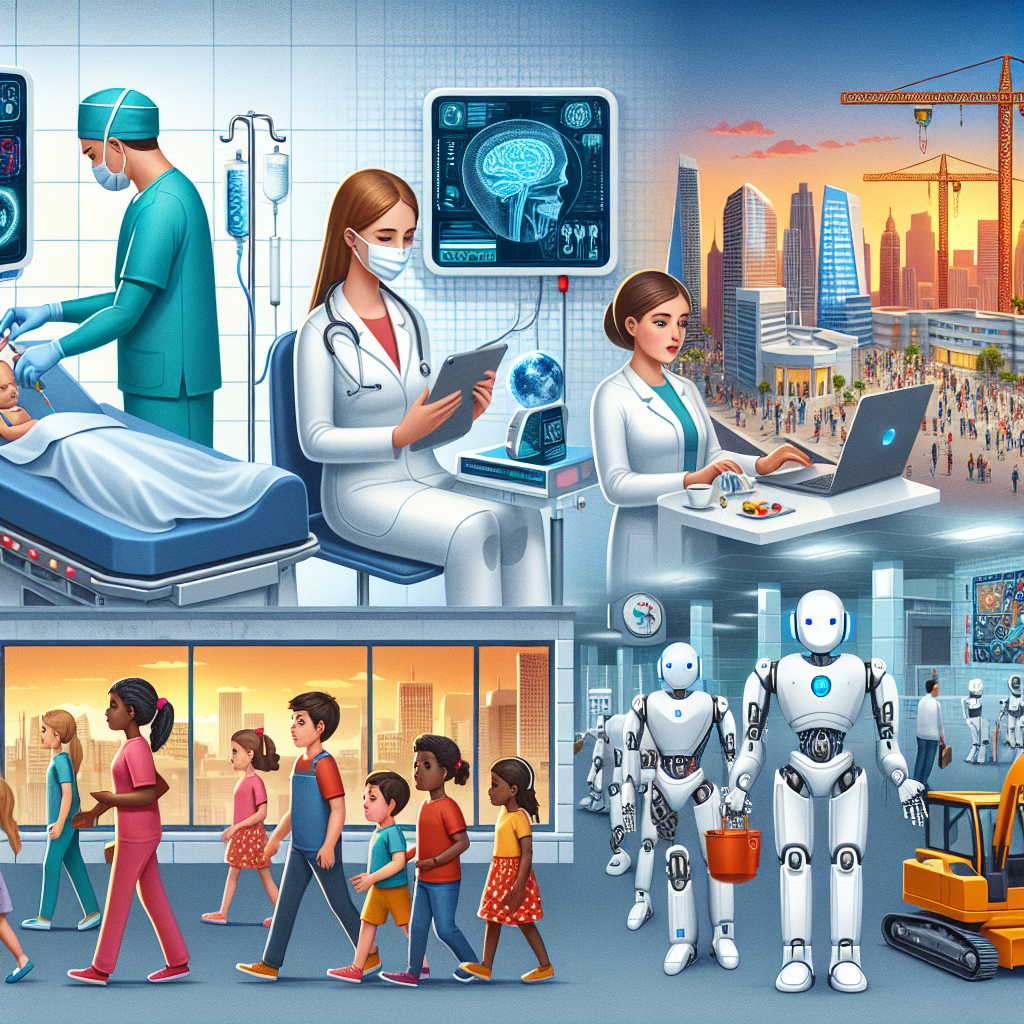With advancements in artificial intelligence (AI) technology, the concept of Artificial General Intelligence (AGI) has become a hot topic of discussion. AGI refers to a type of AI that possesses human-like cognitive abilities, allowing it to perform a wide range of tasks that typically require human intelligence. As the development of AGI continues to progress, there are growing concerns about its potential impact on the workforce. Will robots replace human jobs? This article will explore the potential impact of AGI on the workforce and discuss the implications for the future of work.
The Impact of AGI on the Workforce
The development of AGI has the potential to revolutionize the way we work and live. With the ability to perform complex cognitive tasks, AGI has the potential to automate a wide range of jobs currently performed by humans. This could lead to significant disruptions in the workforce, with some jobs becoming obsolete and others being transformed by AI technologies.
One of the key areas where AGI is expected to have a major impact is in the field of manufacturing. Robots equipped with AGI capabilities can perform a wide range of tasks with greater speed and precision than human workers. This could lead to the automation of many manufacturing jobs, which could have significant implications for the workforce in countries that rely heavily on manufacturing industries.
In addition to manufacturing, AGI is also expected to have a significant impact on other industries, such as transportation, healthcare, and finance. Autonomous vehicles powered by AGI technology could revolutionize the transportation industry, while AI-powered diagnostic tools could transform the way healthcare is delivered. In the finance sector, AGI could be used to automate complex financial analyses and decision-making processes.
While the potential benefits of AGI are clear, there are also concerns about the impact it could have on the workforce. As jobs become increasingly automated, there is a risk that many workers could be displaced by AI technologies. This could lead to high levels of unemployment and economic instability, as workers struggle to find new roles in an increasingly automated world.
In addition to job displacement, there are also concerns about the quality of jobs that will be available in a world dominated by AGI. As automation technologies become more advanced, there is a risk that many jobs could become low-skilled and low-paid, leading to a decline in living standards for many workers. This could exacerbate existing inequalities in society, as those with the skills and resources to adapt to new technologies thrive, while others are left behind.
Will Robots Replace Human Jobs?
The question of whether robots will replace human jobs is a complex one, with no easy answers. While it is clear that AGI has the potential to automate many tasks currently performed by humans, it is also important to consider the ways in which AI technologies can complement human workers and enhance their productivity.
One of the key arguments in favor of AGI is that it has the potential to free up human workers from mundane and repetitive tasks, allowing them to focus on more creative and complex tasks. This could lead to a more fulfilling and productive work experience for many workers, as they are able to use their skills and expertise in more meaningful ways.
In addition, AGI has the potential to create new job opportunities in industries that have yet to be transformed by AI technologies. As AGI continues to advance, new roles will be created that require a combination of human and machine intelligence, leading to new opportunities for workers to develop new skills and expertise.
However, it is also important to acknowledge the potential risks associated with AGI and its impact on the workforce. As automation technologies become more advanced, there is a risk that many jobs could be automated out of existence, leading to high levels of unemployment and economic instability. This could have significant social and economic implications, as workers struggle to find new roles in an increasingly automated world.
FAQs
Q: Will robots replace all human jobs?
A: While it is unlikely that robots will replace all human jobs, there is a risk that many jobs could be automated in the future. It is important for workers to develop new skills and expertise to adapt to the changing nature of work.
Q: How can workers prepare for the impact of AGI on the workforce?
A: Workers can prepare for the impact of AGI by developing new skills and expertise that are in demand in industries that are likely to be transformed by AI technologies. This could involve learning new technologies, such as programming and data analysis, or developing soft skills, such as communication and problem-solving.
Q: What role can governments play in managing the impact of AGI on the workforce?
A: Governments can play a key role in managing the impact of AGI on the workforce by implementing policies that support workers who are displaced by automation technologies. This could involve providing retraining programs, financial assistance, and job placement services to help workers transition to new roles in the workforce.
In conclusion, the development of AGI has the potential to revolutionize the way we work and live. While there are clear benefits to be gained from AI technologies, there are also concerns about the impact they could have on the workforce. It is important for workers, businesses, and governments to work together to ensure that the transition to an increasingly automated world is managed effectively, with a focus on creating new opportunities for workers and ensuring that the benefits of AGI are shared equitably.

